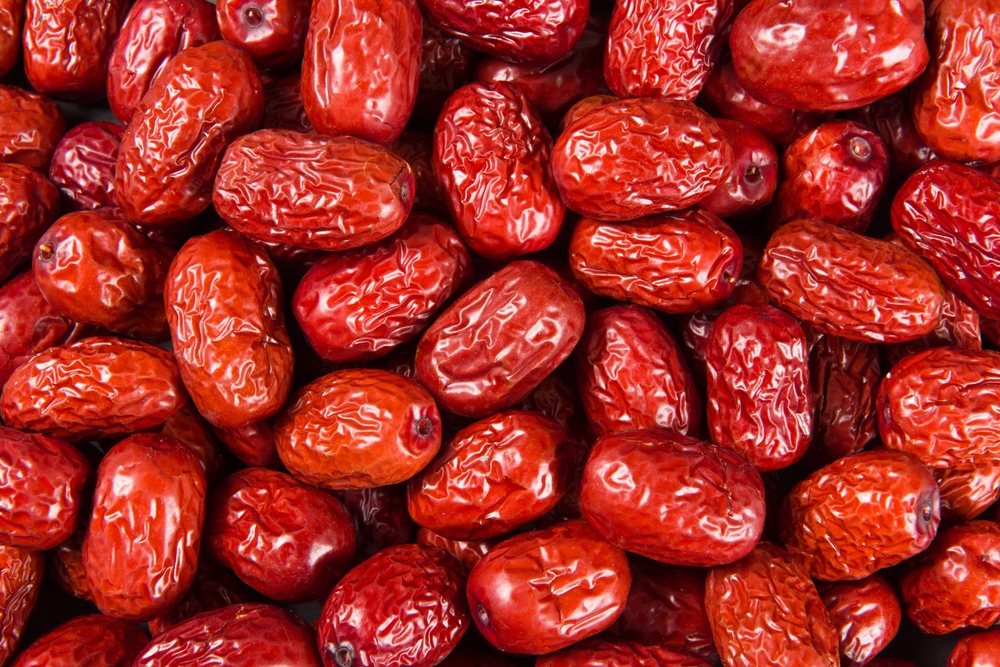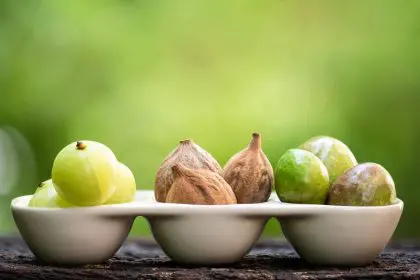Jujube fruit has long been valued for its impressive nutrient content, offering a rich source of vitamins, minerals, and antioxidants. Packed with dietary fiber, vitamin C, and bioactive compounds, this fruit supports multiple aspects of health while remaining low in calories. A single 100-gram serving provides 79 calories, 36% of the recommended daily fiber intake, and 77% of the daily vitamin C requirement. These attributes make jujube a valuable addition to a balanced diet, particularly for those looking to enhance their overall wellness.
Beyond its well-documented nutritional profile, jujube contains phenolic acids and flavonols, which act as powerful antioxidants. These compounds play a crucial role in combating oxidative stress, reducing inflammation, and supporting immune function. The fruit’s ability to provide essential nutrients with minimal caloric intake makes it an attractive choice for those focused on maintaining a nutrient-dense diet.
Scientific validation of traditional claims
The benefits of jujube fruit have been recognized for centuries, but modern research is now confirming its therapeutic properties. Long used in traditional medicine for its calming effects and ability to promote digestion, recent studies highlight its potential impact on sleep, metabolic health, and overall well-being. The bioactive compounds found in jujube have shown promising results in regulating blood sugar levels and improving lipid profiles, particularly for individuals managing type 2 diabetes.
Another area of growing interest is its effect on mental health. Research suggests that certain phytochemicals in jujube may support cognitive function and reduce stress. Although larger clinical trials are needed, early findings suggest that jujube’s unique composition could play a role in neurological health. These discoveries reinforce the relevance of this ancient fruit in modern wellness practices.
Jujube fruit and its impact on sleep
One of the most widely recognized benefits of jujube is its ability to promote restful sleep. The fruit contains compounds that may have sedative properties, potentially helping individuals struggling with insomnia or restless nights. Some clinical observations suggest that consuming jujube extract or tea before bedtime could enhance sleep quality and duration.
Jujube’s effect on sleep is linked to its natural content of saponins and flavonoids, which are thought to influence the nervous system. These compounds may help regulate stress hormones, allowing the body to transition into a more relaxed state. While further studies are needed to establish precise mechanisms, many individuals incorporate jujube-based products into their nighttime routines to support better sleep patterns.
The role of jujube in metabolic health
Jujube fruit is gaining attention for its potential to support metabolic health, particularly in managing blood sugar levels and cholesterol. Studies indicate that jujube’s natural fiber and antioxidant content may contribute to improved glucose metabolism, reducing the risk of insulin resistance. Additionally, its ability to lower bad cholesterol (LDL) while maintaining good cholesterol (HDL) suggests a possible role in heart health.
For those with metabolic disorders, incorporating jujube into daily meals may offer a natural way to improve overall health markers. Some research even suggests that regular consumption could aid in weight management by promoting satiety and reducing unhealthy cravings. While jujube should not replace prescribed treatments, its inclusion in a balanced diet could complement existing health strategies.
How to incorporate jujube into your diet
Jujube’s versatility allows it to be enjoyed in various ways, making it easy to integrate into daily nutrition. The fruit can be eaten fresh, dried, or processed into teas, powders, and extracts. Many people enjoy jujube as a natural sweetener in smoothies, breakfast cereals, and desserts.
For those looking to explore new ways to consume jujube, consider:
- Adding dried jujube to oatmeal or yogurt for a nutrient boost
- Brewing jujube tea as a calming evening beverage
- Using fresh jujube in fruit salads for natural sweetness
- Incorporating jujube paste into baked goods for enhanced flavor
- Mixing jujube powder into protein shakes or herbal drinks
These options highlight the fruit’s adaptability, allowing individuals to reap its benefits in a way that suits their dietary preferences.
Understanding safety and consumption guidelines
While jujube is generally safe for consumption, certain individuals should exercise caution. Those with latex allergies may experience cross-reactivity, and individuals on specific medications should consult healthcare professionals before incorporating jujube into their diet. The presence of bioactive compounds means potential interactions with blood-thinning drugs and diabetes medications, making professional guidance essential.
For most people, moderate consumption poses minimal risk. As with any dietary addition, balance remains key. Including jujube as part of a varied diet ensures that individuals can enjoy its benefits while maintaining overall nutritional harmony.
The growing future of jujube in health and wellness
As research continues to uncover the full potential of jujube fruit, its popularity is expected to rise in global health markets. From supplements and extracts to functional food products, jujube is becoming more accessible to consumers seeking natural solutions for wellness.
The convergence of traditional medicine and modern science underscores jujube’s significance as more than just a cultural staple. With increasing recognition of its health-supporting properties, this ancient fruit is finding new relevance in contemporary nutrition. Whether for improved sleep, metabolic support, or general well-being, jujube’s growing presence in health discussions signals an exciting future for this time-honored superfood.

















